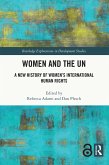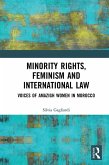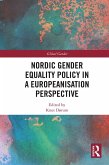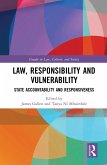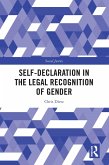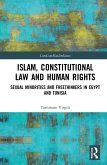This book provides a critical history of influential women in the United Nations and seeks to inspire empowerment with role models from bygone eras.
The women whose voices this book presents helped shape UN conventions, declarations, and policies with relevance to the international human rights of women throughout the world today. From the founding of the UN up until the Latin American feminist movements that pushed for gender equality in the UN Charter, and the Security Council Resolutions on the role of women in peace and conflict, the volume reflects on how women delegates from different parts of the world have negotiated and disagreed on human rights issues related to gender within the UN throughout time. In doing so it sheds new light on how these hidden historical narratives enrich theoretical studies in international relations and global agency today. In view of contemporary feminist and postmodern critiques of the origin of human rights, uncovering women's history of the United Nations from both Southern and Western perspectives allows us to consider questions of feminism and agency in international relations afresh.
With contributions from leading scholars and practitioners of law, diplomacy, history, and development studies, and brought together by a theoretical commentary by the Editors, Women and the UN will appeal to anyone whose research covers human rights, gender equality, international development, or the history of civil society.
The Open Access version of this book, available at
http://www.taylorfrancis.com/books/e/9781003036708, has been made available under a Creative Commons Attribution-Non Commercial-No Derivatives 4.0 license.
The women whose voices this book presents helped shape UN conventions, declarations, and policies with relevance to the international human rights of women throughout the world today. From the founding of the UN up until the Latin American feminist movements that pushed for gender equality in the UN Charter, and the Security Council Resolutions on the role of women in peace and conflict, the volume reflects on how women delegates from different parts of the world have negotiated and disagreed on human rights issues related to gender within the UN throughout time. In doing so it sheds new light on how these hidden historical narratives enrich theoretical studies in international relations and global agency today. In view of contemporary feminist and postmodern critiques of the origin of human rights, uncovering women's history of the United Nations from both Southern and Western perspectives allows us to consider questions of feminism and agency in international relations afresh.
With contributions from leading scholars and practitioners of law, diplomacy, history, and development studies, and brought together by a theoretical commentary by the Editors, Women and the UN will appeal to anyone whose research covers human rights, gender equality, international development, or the history of civil society.
The Open Access version of this book, available at
http://www.taylorfrancis.com/books/e/9781003036708, has been made available under a Creative Commons Attribution-Non Commercial-No Derivatives 4.0 license.
Dieser Download kann aus rechtlichen Gründen nur mit Rechnungsadresse in A, B, BG, CY, CZ, D, DK, EW, E, FIN, F, GR, HR, H, IRL, I, LT, L, LR, M, NL, PL, P, R, S, SLO, SK ausgeliefert werden.



